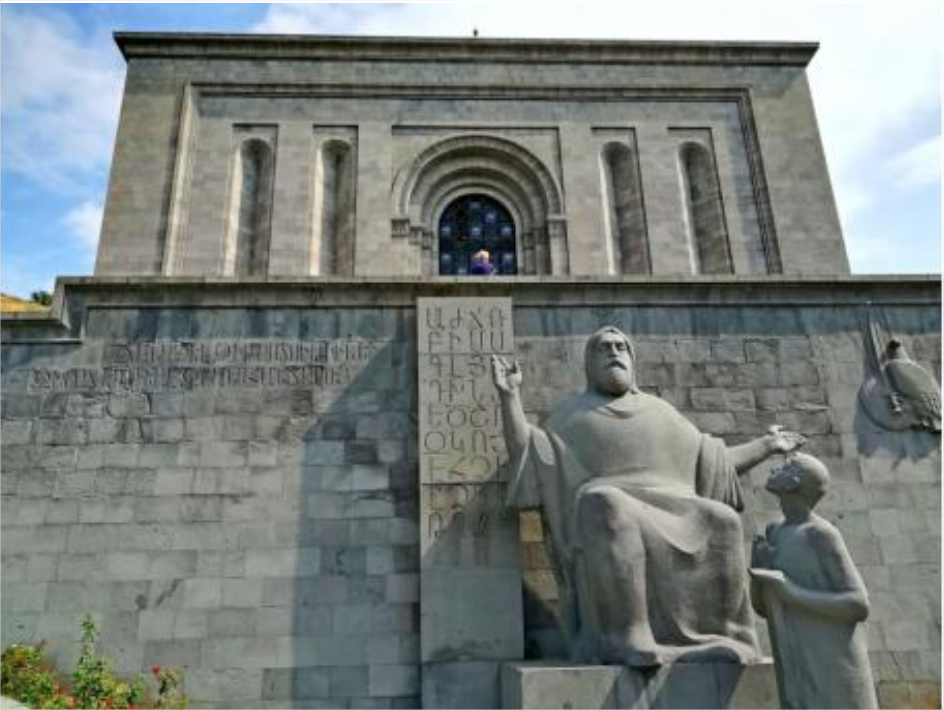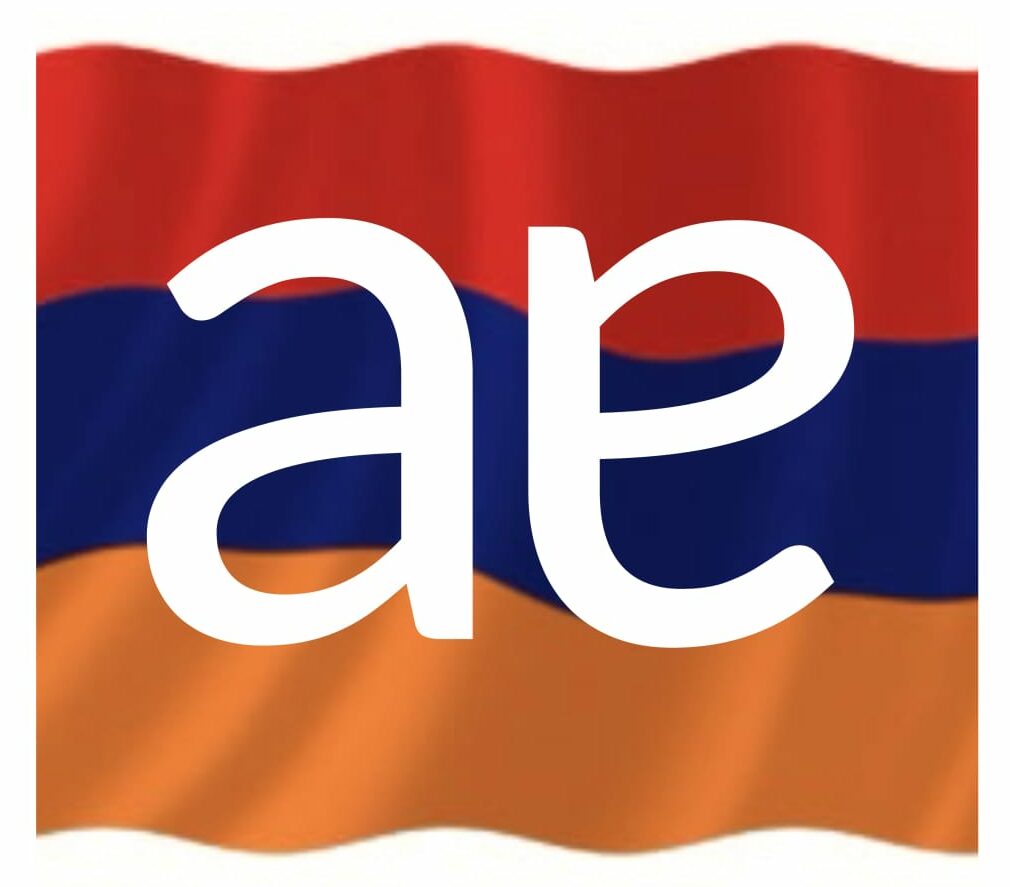
It is difficult to shake the impression that Pashinyan’s authority is, in its entirety, composed of ‘outsiders’. This is more than merely a question of enemies. After all, one can reconcile with an enemy, but an outsider will always remain an outsider. For people of integrity, there are no common views, no common language with them. And even if, by some accident, the same words are uttered, their meaning is altogether different.
Thanks to the efforts of these ‘outsiders’, everything linked to our national values, traditions, history, and culture is gradually fading into oblivion. These elements are disappearing far faster than the population itself is shrinking. What of Narekatsi? – boys and girls (Armenians by documentation) have no idea when the Armenian script was created! This government is deliberately eradicating us as a people, as a nation, as a society. If it achieves its goal, Pashinyan will be able to proudly and with satisfaction declare: “We have completed the devil’s work.”
Mel Gibson’s Apocalypse opens with the line: “A civilisation that has come into being cannot be destroyed from without until it destroys itself from within.” This, without a doubt, applies to us. The transformation of a nation into a tribe, and the total degradation of all that defines it. And no one, specifically, within this pack of officials will be held responsible for the disaster that has befallen us. For nowhere and at no time have the wrongdoers themselves been held accountable for the consequences of their actions.
Today, many of us, including ourselves, are speaking and writing about the decision made at the latest government session to rename the school subject “History of the Armenian People” to “History of Armenia,” decrying it as a “monstrous piece of news.” Therefore, before we revisit this issue, we wish to clarify immediately: we are not dealing with news here. The question of renaming the subject was not even debated at the last government session. The verb ‘debated’ is, of course, entirely out of place here; the decision was made long ago. What we are dealing with is simply another phase in the anti-national agenda.
Almost immediately after Pashinyan took power, and at the initiative of the then Minister of Education, Science, Culture, and Sport, Arayik Harutyunyan, the subjects “Armenian Language and Literature” and “Armenian History” were made optional in universities.
Then, the number of hours allocated for Armenian language and literature in schools was reduced.
The next step was the removal of the subject “History of the Armenian Church” from the school curriculum. Meanwhile, the existence of the “History of the Armenian Church” as a separate subject was enshrined in Article 8 of the Law on “Relations between the Republic of Armenia and the Armenian Apostolic Church.” The authorities attempted to justify their unlawful decision by claiming that international bodies were allegedly deeply concerned about the existence of the subject “History of the Armenian Church.”
This is, of course, a bold and cynical falsehood. The Venice Commission issued two opinions regarding this law (on 13 July 2009 and 16 October 2017), and on both occasions, it did not regard the existence of the “History of the Armenian Church” as a separate subject as a matter of concern. Furthermore, the European Court of Human Rights has classified the teaching of Church history as a means of safeguarding human rights by enhancing and improving education.
Now, the focus has shifted to the “History of the Armenian People.” Naturally, this is not simply a matter of renaming the subject. The authorities intend to radically alter the content of the course to make it “reflect the idea of statehood.” The primary emphasis will be placed on studying the “Pashinyan era,” declaring Artsakh as part of Azerbaijan, and introducing a whole series of “terminological clarifications” (for instance, Western Armenia will be referred to as Anatolia, etc.).
How should we characterise what is unfolding? What do we observe in our surroundings, everywhere? From where did these illiterate know-it-alls emerge? From what eschatological depths did they surface? How did they construct their impenetrable wall, their unassailable fortress of idiocy? And the more absurd the initiative put forth by the authorities, the more likely it is to become a reality.
These individuals wish to remake everyone else in their own image. Armenian history, language, and literature, our national values and traditions, are nothing but impediments to them. The descent is effortless. With exultation, with whistling, and joyous cries. They’ve descended, only to realise that the lift not only does not work, it has not even been constructed. And how, then, do they ascend?
History is necessary for an individual and for society in order to know and understand. To know and understand what has happened, what is happening now, and what might happen in the future, to us, around us, and after us. And this knowledge and understanding should, in turn, be converted into pride, or anger, or shame. And, to be frank, it is somewhat embarrassing to repeat such obvious truths. But it must be done, what else can one do?
If a people abandon the faith and customs of their ancestors, forget their history, and cease to speak and write in their mother tongue – that people is dead. This is as true as if they were all to be marched through gas chambers and mass graves. A slave who knows only that he is the descendant of slaves, and that his children will be slaves, is doomed. But the one who preserves the memory of his people’s past will survive and rise again.
Without knowledge of their own history, amidst the heap of fragments of what was once a nation, something new may grow. What, exactly? Certainly not the Armenian people. Some new, living matter may spring forth. What will this matter be? We are convinced that it will be anti-national growth. The seeds sown by Pashinyan’s government will sprout into grotesque forms of life. This will not be a continuation of the people’s life – the dead do not rise. It will be a new, foreign life, growing from the decomposition of our people.
Thistles always grow on ruins. They will rot, become humus, sprout again, rot again, and so on many times, and only then, perhaps, something worthwhile will grow in the enriched soil. Or it may not grow at all.
The knowledge of one’s own history is the absolute minimum required to preserve spiritual and national values in the minds of generations, to refine us morally and ethically, and to shape us as Armenians. And if the soul (the organ of morality) atrophies and disappears through disuse – then what? If the fertile soil is stripped away, washed away, carried off by the wind – then it is the end. Nothing will grow on stone or clay.
Then, we will truly have to speak of catastrophe. Then, Lord have mercy on wretched Armenia.
Main source: golosarmenii.am

